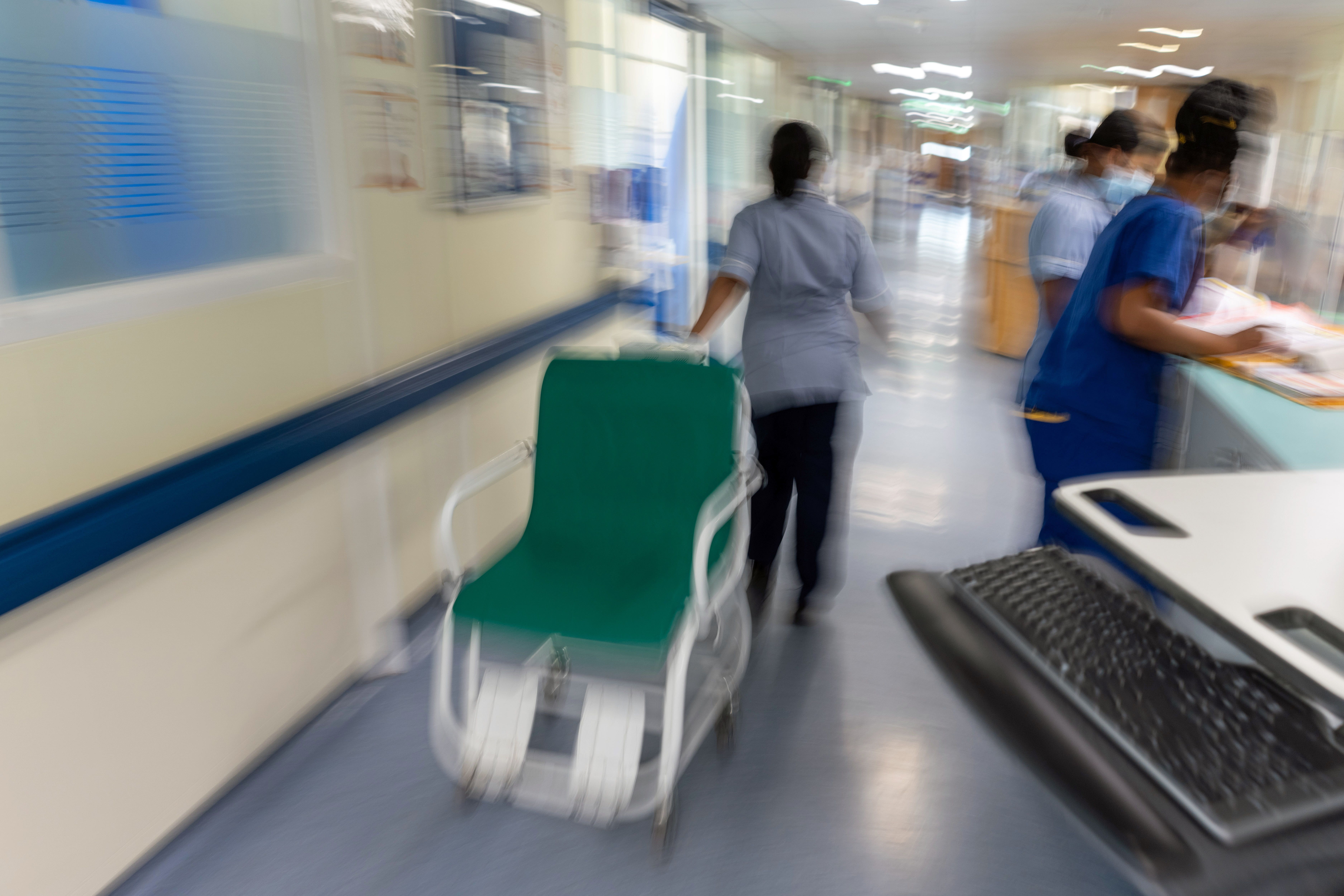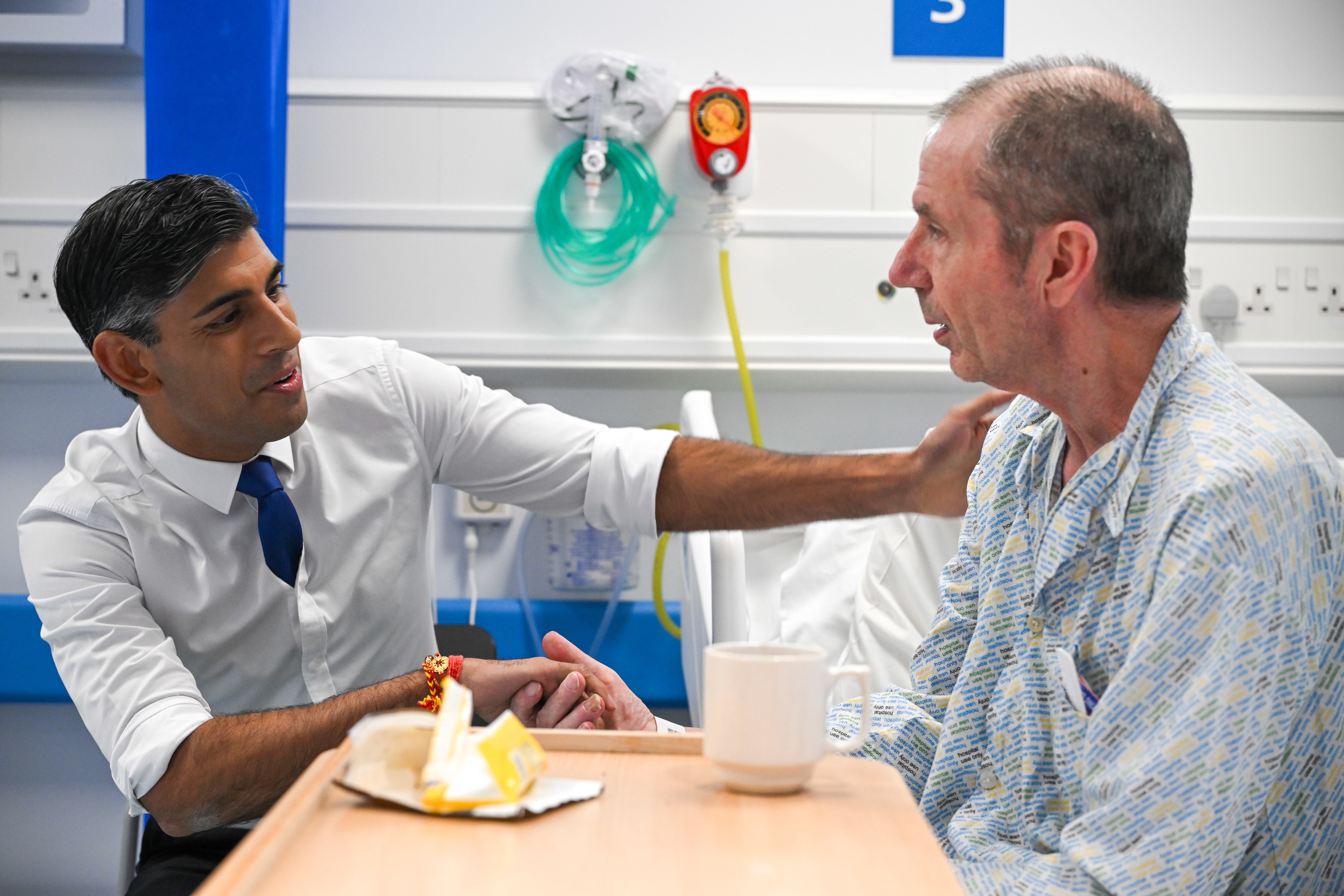NHS waiting list could be 2 million higher than thought, new data suggests
NHS England has claimed the waiting list would be 430,000 lower without strike action

Your support helps us to tell the story
From reproductive rights to climate change to Big Tech, The Independent is on the ground when the story is developing. Whether it's investigating the financials of Elon Musk's pro-Trump PAC or producing our latest documentary, 'The A Word', which shines a light on the American women fighting for reproductive rights, we know how important it is to parse out the facts from the messaging.
At such a critical moment in US history, we need reporters on the ground. Your donation allows us to keep sending journalists to speak to both sides of the story.
The Independent is trusted by Americans across the entire political spectrum. And unlike many other quality news outlets, we choose not to lock Americans out of our reporting and analysis with paywalls. We believe quality journalism should be available to everyone, paid for by those who can afford it.
Your support makes all the difference.The NHS waiting list could be as high as almost 10 million, 2 million higher than official figures show, according to new data from the Office for National Statistics.
The ONS surveyed the public on their attempts to get GP appointments and other bookings and found 9.7 million people are waiting for an appointment. This is despite the most recent official NHS data showing 6.3 million individuals are waiting for care.
More than 1.3 million people said they have been waiting for more than a year – compared to NHS data showing a backlog of 321,394 appointments.
Separately, new data published by NHS England shows 430,000 patients’ operations were deferred during strike actions from December last year to date.
The figures, as first reported by the Health Service Journal, come after the NHS waiting list has decreased for three months in a row, now standing at 7.6 million appointments for 6.3m patients. This is despite two rounds of strikes by junior doctors.
The prime minister Rishi Sunak, who failed to meet his pledge to cut the NHS’ backlog last year, has previously claimed the doctors strikes have impacted the health services ability to reduce its waiting list.
A spokesperson for doctors’ union the British Medical Association said in response to the data: “The failures of this Government, year on year, have made it impossible for the NHS to treat patients on time – for those with cancer, on a waiting list, or needing care in the Emergency Department.
“It is wholly disingenuous for NHS England to blame a failure to meet targets on industrial action when waiting lists were growing and targets were being missed before any strike action began and thousands of appointments and operations are cancelled day in, day out due to lack of staff and beds or broken equipment, when there are no strikes.”

The poll from the ONS also revealed one in 20 people who call their GP for help are told to call back on another day and more than one in 10 were told they would need to wait for more than two weeks for care.
It comes as a major poll of the public’s attitude to the NHS revealed GP access was the biggest factor in patients’ dissatisfaction with the service.
According to the ONS, some 5.3 per cent of people were told to “make contact again another day, as the GP practice could not help that day”, according to the new survey by NHS England and the Office for National Statistics (ONS).
The NHS England/ONS survey, which was carried out between January 16 and February 15, also asked participants about their experiences of contacting GP surgeries.
Among those people who tried to contact a GP practice in the past month for themselves or for someone else, nearly half (49.4 per cent) said it was very easy or easy while nearly a third (31.3 per cent) said it was very difficult or difficult.
The proportion finding it very difficult or difficult was highest among 25 to 34-year-olds (40.2 per cent) and lowest among people aged 70 and over (20.4 per cent).
On average, the NHS is now offering around 1.4 million GP appointments every working day, according to NHS England.
Figures for February show that GP teams in England delivered 30 million appointments in February – up from 25 million pre-pandemic.
Andrew Gwynne MP, Labour’s Shadow Health Minister, responding to ONS survey said: “Pull back the cover and the crisis in the NHS is even worse than it appeared. One in every five people in England are stuck on waiting lists, and they are waiting longer than ever before.
“Rishi Sunak has broken his pledge to cut waiting lists, and now he’s planning to close services and cut doctors and nurses. The longer the Conservatives remain in office, the longer patients wait.”
The Department for Health and Social Care were approached for comment.
Join our commenting forum
Join thought-provoking conversations, follow other Independent readers and see their replies
Comments